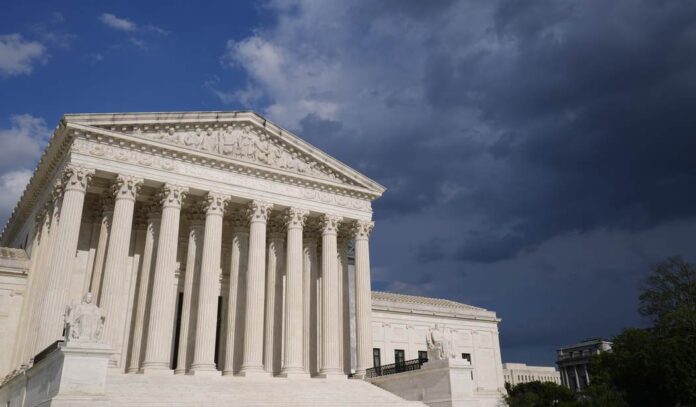The Supreme Court has stated that when it comes to the loss of our First Amendment freedoms, even temporarily, people suffer irreparable injury. But when it comes to our right to keep and bear arms, some courts have adopted the point of view that irreparable harm isn’t done by keeping constitutionally suspect laws in place and in force while they’re subject to a lawsuit.
Now the Firearms Policy Coalition and the Second Amendment Foundation are asking SCOTUS to correct that error and put the Second Amendment on equal footing with our other enumerated rights.
On Monday, FPC and SAF filed a petition with the Court asking the justices to take up the case of Gray v. Jennings and two related cases that all deal with Delaware’s ban on so-called assault weapons and large capacity magazines. While the underlying case deals with prohibition on commonly-owned arms, the 2A groups are specifically asking SCOTUS to address whether the infringement of Second Amendmentrights constitutes per se irreparable injury.
According to the organizations, while some appellate courts like the Seventh Circuit and (believe it or not) the Ninth Circuit have held that violating the Second Amendment does constitute an irreparable injury to those affected, the Third Circuit declined to do so, and turned away a request for an injunction without even delving into the constitutional concerns over the law. Instead, a panel on the Third Circuit ruled that the plaintiffs had “failed to establish an irreparable harm other than the loss of their Second Amendment rights”, and that wasn’t a good enough reason to put the law on ice while litigation continues.
As the petitioners write, the Third Circuit’s stance is yet another example of lower courts treating the Second Amendment as a second-class right.
No monetary damages can adequately compensate a plaintiff for the loss of his inalienable constitutional rights. The Framers charged this Court and the Nation’s other “independent tribunals of justice” with “resist[ing] every encroachment upon rights expressly stipulated for in the Constitution by the declaration of rights,” 1 ANNALS OF CONG. 439 (1789) (statement of Rep. James Madison)—not with standing clear of open encroachments so long as the Government pays its way. This Court has repeatedly recognized this principle in the context of the First Amendment… but it has not explained its reasoning at significant length. The brevity of this Court’s decisions on the subject has led to confusion—and now, direct conflict—in the courts of appeals over the principle’s nature and scope. This Court should grant the writ and clarify that the loss of Second Amendment freedoms, too, necessarily constitutes irreparable injury.
As the plaintiffs point out, violations of Delaware’s “assault weapon” ban can result in felony charges and up to eight years in prison, along with the lifetime loss of the right to keep and bear arms. That’s an injury that is most definitely irreparable, yet both the district court and a three-judge panel on the Third Circuit claimed that the First Amendment is unique and special when it comes to irreparable injuries. In fact, the Third Circuit went even further, arguing that it would be the state of Delaware that would suffer irreparable harm if the gun and magazine bans were subject to an injunction.
The panel also recognized that the Third Circuit had indeed deemed “constitutional harms irreparable” in previous cases; but it insisted that those precedents all fell within an “exception to our rule: we presume that First Amendment harms are irreparable.” That exception, according to the panel,was justified by “[u]nique First Amendment doctrines” and does not apply in the context of any other constitutional rights. And given this reframing of the highly limited availability of preliminary injunctive relief, the panel concluded that Petitioners “claimof irreparable harm collapses.” It further concluded that the remaining equitable factors also militated against preliminary relief, reasoning that “[t]here is always a public interest in prompt execution of the laws” and that “[a]ny time a State is enjoined by a court from effectuating statutes enacted by representatives of its people, it suffers a form of irreparable injury.”
The Supreme Court has repeatedly declined to get involved in Second Amendment cases before they’ve been fully decided on the merits, but FPC and SAF aren’t asking the justices to decide whether or not Delaware’s gun and magazine ban violate the Second Amendment. Instead, they’re asking a salient question about the decision-making involved in granting injunctive relief in Second Amendment cases (there’s already an “assault weapon” and magazine ban case called Snope v. Brown that the Court will consider in conference later this fall). Whether that will entice at least four justices to grant cert remains to be seen, but it’s a legitimate question to pose… and one that only SCOTUS can answer with authority.




